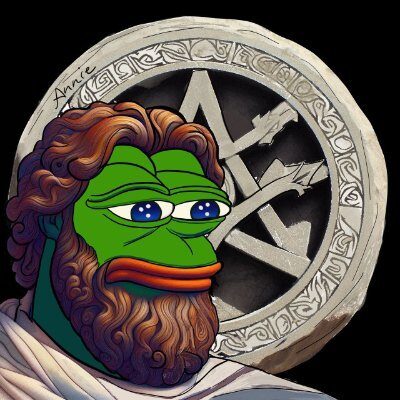In the vast, uncharted expanse where the relentless march of artificial intelligence converges with the radical ethos of anarchic transhumanism, bolstered by the cypherpunk ideals of privacy and decentralization, emerges a vision of a future where humanity transcends its current constraints. This is not merely a world where technology enhances individual capabilities but one where AI, guided by the principles of freedom, anonymity, and communal governance, redefines the very fabric of society.
Imagine a world where AI does not serve as a tool of the elite or the State but as a communal resource, a shared engine of progress where the benefits of technological advancement are universally accessible. Here, AI is not the harbinger of a new form of control but a liberator, its algorithms transparent, its operations decentralized, embodying the anarchist ideal of self-governance and mutual aid. In this future, AI automates not just for efficiency but for liberation, liberating humans from the drudgery of work to engage in pursuits of idividual passion, creativity, and communal well-being.
The cypherpunk spirit, with its deep-rooted belief in privacy, encryption, and the power of the individual against central authorities, intertwines with this vision to ensure that AI’s integration into society does not compromise personal autonomy or privacy. Blockchain technology, a cornerstone of cypherpunk philosophy, becomes the backbone of this new world. It ensures that every interaction with AI, every decision made by or with AI, is transparent yet secure, it gives anonymity when it’s required and is accessible to all but controlled by none. Through smart contracts, communities can govern themselves, manage resources, and make collective decisions without the need for a central authority, embodying the anarchic principle of self sovereignty.
In those societies, education is revolutionized. AI, combined with open-source knowledge platforms, allows for personalized learning experiences that adapt to individual needs, styles, and curiosities. Learning is not confined by geographic, economic, or social barriers but is a communal endeavor where knowledge is shared freely, fostering a culture of continuous, self-directed learning. Here, the enhancement of human intellect is not about creating an elite class but about elevating everyone, ensuring that cognitive augmentation, be it through AI-assisted learning or direct neural interfaces, is a right, not a privilege.
This is poised to revolutionize the way scientific research is conducted, particularly in the realm of decentralized and open-source science. By leveraging AI’s capabilities, researchers will be able to analyze vast amounts of data, identify patterns, and make connections that would be impossible for humans to do alone. This will enable scientists to work together more effectively, sharing their findings and building upon each other’s discoveries without the constraints of intellectual property or patents. As a result, scientific progress will accelerate at an unprecedented rate, with breakthroughs emerging from the collective efforts of a global community of researchers. The absence of proprietary restrictions will allow AI to freely access and process information, generating new insights and imaginable discoveries.
Physical enhancement, too, transforms under this paradigm. With AI assisting in the design and implementation of genetic modifications, bionics, or even more radical forms of body augmentation, the principle of morphological freedom becomes a lived reality. Individuals are free to choose how they wish to modify their bodies, supported by a community-driven, ethically decentralized guided science. This isn’t about creating superhumans but about allowing everyone to live in a body that suits their identity, desires, or needs, free from societal or economic constraints.
The economy of this world is reimagined, moving away from capitalism’s scarcity model to one of abundance facilitated by AI. Automation does not lead to unemployment but to a redefinition of what work means, where labor is not a means to survive but an expression of creativity, community service, or personal development. Resources are managed not by market forces but by AI systems that predict, produce, and distribute based on communal consensus, embodying the anarchist dream of post-scarcity economics.
Yet, this vision is not without its challenges. The risk of AI becoming a tool for surveillance or control remains unless it’s developed with the cypherpunk insistence on privacy and anonymity. Ethical AI development becomes paramount, ensuring that algorithms are free from biases that could perpetuate existing inequalities. The balance between technological dependency and human autonomy must be carefully maintained, with mechanisms in place where AI’s influence is always subject to human review and community oversight.
In this anarcho-trans-humanism society, governance is a fluid, community-driven process based in individuals of self sovereignty. Decisions about how to use AI, how to integrate new technologies, or how to manage communal resources are made collectively, often through AI-assisted consensus mechanisms that respect the diversity of opinions and needs. Here, technology does not dictate but facilitates, allowing for a society where every individual can explore their potential in a world not defined by borders, hierarchies, or scarcity but by cooperation, freedom, and the shared pursuit of knowledge and enhancement.
This vision relies on a cultural shift where technology is seen not as an end but as a means to an end—a society where the ideals of anarchism, transhumanism, and cypherpunkism converge to create a world more just, more free, and infinitely more human than we can currently imagine. It’s a call to action for those who believe in the transformative power of technology when guided by ethical, egalitarian principles, envisioning a future where AI is not just about making life easier or longer but about creating a space where every individual has the tools to live a life of meaning, in community with others, unhindered by the constraints of past societal structures.




